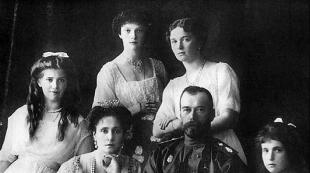Igor mann how to become number 1
© I. B. Mann, 2014
© Design. LLC "Mann, Ivanov and Ferber", 2014
All rights reserved. No part of the electronic version of this book may be reproduced in any form or by any means, including posting on the Internet and corporate networks, for private and public use, without the written permission of the copyright owner.
Legal support of the publishing house is provided by the law firm "Vegas-Lex"
* * *
Dedicated first
From the author
I never thought that I was somehow special, purposeful and systematic in creating my brand (although many people think that this is exactly what I do).
Let me tell a story.
A few years ago, I received a letter from a consultant (let's call him Stepan) with the following request: “Igor, could you make me as famous in my field as you are famous in marketing. You are in marketing #.1. I also want to be No. 1, but in my field.”
Shortly before our meeting with Stepan, I discovered mind mapping (building memory maps) with great pleasure.
I always liked taking on new challenges, and I told Stepan that I would see if I could tell him how I became so famous in marketing and if he could use my experience.
Yes, they call me the guru, the top marketer, the most famous marketer… But really, how did this happen and what needs to be done to replicate it in another field?
Let me explain right away: I really consider myself No. 1 in Russian marketing. Not a guru, namely No. 1.
Why? I have done and am doing a lot to promote and popularize it, I give lectures, consult, I have written ten books, all of them are original and one of a kind.
I was the face of the cover of The Company magazine when I started working in Austria in 2000 as Chief Marketing Officer for Avaya in the Central Eastern Europe, Middle East and Africa region, responsible for marketing in 68 countries around the world.
It turns out that in order to repeat my path, you need to do simple and understandable things. (see first level).
Set a goal (for example, "Become No. 1 in ...").
Do an audit of yourself.
Constantly and systematically engage in personal and professional development.
It is imperative (I emphasize: mandatory) to achieve high results in what you do. Without “records”, achievements, “business cards”, first-class projects and results, you are definitely not No. 1.
And in the last place in this algorithm is promotion. It should be, but it is not a decisive success factor.
The components of these large items can be detailed.
And when you reach your goal of becoming No. 1, you will need to adjust your goal, raise the bar, or set a completely new goal for yourself.
Naturally, such a simple answer to Stepan (let me remind you: he is a consultant) would obviously not be enough, and I “dived” into books on this issue and into the Internet.
So much has been written on this subject!
And almost all books are like twins: repetitive advice, repetitive stories...
And surprisingly: there are a lot of letters everywhere, but none of the authors proposed the “do one, do two, do three” model.
Many tell how to become a brand, how to become a superbrand, but do not explain how to do it (I have not seen the system).
Many told absolutely amazing things for me - and after Stanislavsky I repeated his words: “I don’t believe!”
And then - as agreed! - within six months, I was repeatedly asked about the same by others, acquaintances (my colleagues) and complete strangers. And every time I opened my card and for an hour and a half I “ran” over it together with the interlocutor, and every time everyone who turned to me was simply happy. The roadmap - what to do to become No.1 - was transparent, understandable and made it possible to start working on it immediately after the meeting.
The more No.1 will be in our country - first-class specialists, experts, consultants, employees, managers, entrepreneurs - the better for each city, region and our country (and, of course, for No.1 himself, for his family and clients /partners/colleagues).
That is how this book came about. And I'm glad you have it in your hands. So, you are already one of us or will be with us soon.
I read your thoughts: “What if someone in marketing, working on this card, becomes No. 1 and pushes Igor Mann aside?”
I confess it's possible. But I'm not afraid of it.
Anyone who decides to do this (and he is a brave person!), Should remember that I do not stop and work on this map myself (always!).
So if anyone decides, then see you on the route.
The strongest will win.
The book you hold in your hands is as simple as the map you just saw. 100% answering the question “what to do?”, Unfortunately, it does not give detailed and detailed answers to the questions “how to do it?”. But every time I will try to recommend you the best sources of information - books and specialists.
All that remains for you is to create your map, develop your plan to become No.1 and become No.1.
Don't skip steps.
Do tasks after the chapters.
Desire + goal + hard work + great results - and you should succeed. Begin!
How to work with this book?
The best thing a book can do for a person is to make him act.
Thomas CarlyleDozens of books in Russian and thousands in English have been published about self-marketing.
Since 2009, when I wrote the book Marketing Without a Budget, I want to write books in such a way that the reader will say: “Wow, I have not seen this before.”
I'm sure you've never seen a book like this one before.
This book is about what is important to know and what is important to do in order to become #.1. But it will not replace highly specialized books on various aspects of personal development and books on self-marketing. It is impossible to collect all the tips that will help you become No. 1 under one cover, and at the same time be interesting to every reader (after all, everyone has their own level of development, their own goals and ambitions).
You will find here a step-by-step algorithm on how to get from the point where you are now to the point where you want to be - how to become No. 1 in what you do (want to do).
In the course of reading, gradually complete the tasks from Appendix 1. This is a checklist according to which you should check yourself and work on yourself. And at the same time, it is a roadmap along which you will move, focusing on exactly what you need, and adding - in quantity, quality, pace - where necessary.
Here is my example.
I'm reading about the ability to write.
I believe that this skill is critically important for me. I think he is well developed. The priority in its development for me is in category B. My table row will look like this:
You may be surprised that I prioritized B over A.
It's just that I have many other skills that are more important to me that I need to develop first.
I think that 99% of book readers (and I myself am one of them) skip the exercises in which the author encourages them to underline something, fill in, think, answer ...
The more honest and complete your answers are, the faster and better the result will be.
Since 2009, my calling card has been the following phrase: the most important thing in marketing (yes, in anything!) is to know what to do; know how to do, and take and do.
There will be no miracles. Just by reading this book, you will not become No.1. Reading, taking notes and thinking without practical application do not bring results.
Set a goal.
Explore your options.
Develop yourself.
Show results.
Move on.
Marshall Goldsmith, in his book Jump Above Your Head, writes: “Statistically, if you improve in a particular area, your other indicators improve as well ... A change in one leads to an overall improvement.”
Just imagine how you will change and what the results will be if you start moving and improving on all fronts!
Labor made a man out of a monkey. Purposeful work and work according to the system will make Man No. 1 out of a person.
I am sure about that.
Step 1
Target
At this step, the main thing is not to make a mistake.
You can go the wrong way, not the right place at all. This is fraught with loss of time, effort and money. So think very carefully about your goal.
And don't lose sight of her.
Your goal-setting mantra: ambitious, achievable, always in front of your eyes.
1.1. aiming
The journey of a thousand miles begins with the first step.
Chinese wisdomI could be much more helpful to you at this stage, but, alas, you are not next to me, do not talk about yourself, your goals and ambitions, do not share your thoughts with me ...
I don't understand your desires and possibilities, I don't feel your emotions...
I cannot confirm the correctness of your intentions or correct your plans (sometimes I have corrected the initial goal of my interlocutor quite strongly).
But I will still give you a few tips.
Firstly, it will be good if the goal was formulated according to the SMART model (an abbreviation of the words specific - specific; measurable - measurable; attainable - achievable; relevant - significant; time-bounded - correlated with a specific deadline).
I want to warn the reader right away: it is impossible to collect all the knowledge on the topic of self-marketing and personal and professional development under one cover, and there is no need - it will turn out to be a multi-volume book that few people want to read.
My goal is to make a kind of road map (road map) of your development from the state you are in to No. 1.
Second, your goal must be ambitious.
The goal of becoming No. 1 is worthy.
No. 1 in sales in his company.
No. 1 in sales in its industry.
Bligh's book, How to Become a Guru in 60 Days, has some good advice: It's hard to be No. 1 in a field right now, so it's best to narrow your focus.
For example, you want to become No. 1 in marketing.
Marketing is too broad a concept.
And there are a lot of industries in which it is used.
Choose a narrow marketing area and industry - and your goal is ready.
For example, let's say you plan to become #.1 in direct marketing in the pharmaceutical industry.
It's achievable and it's ambitious.
When you reach this goal, you can move on to a new area of marketing or a new industry.
No.1 in anything in the country.
No.1 in anything in the world (and why not?)
Unexpectedly, at the first international marketing forum, which was initiated and patronized by Philip Kotler, the international marketing guru, I heard him introduce me to his colleagues: “And this is Igor Mann from Russia, he is No. 1 in marketing without a budget.” (Oh! It's worth a lot!)
How did I do it?
Philip just really liked my book, and he does not know other experts in this field (I was the first here - and became No. 1).
Of course, some readers and the goal of becoming No. 2 in their field will make them jump out from under the covers every morning.
I read in the book "How People Think" that the Japanese have a concept of "ikigai" - this is what you wake up for in the morning (let your "ikigai" be "getting up to take a step towards becoming No. 1 in ... ").
The Japanese are generally very purposeful people. They have such a tradition: they buy an eyeless doll (it is called “daruma”; rather, it is the head of a doll), make a wish or set a goal, draw one eye, and - go ahead!
Until the wish is fulfilled and the goal is achieved, the doll looks at you with a mute one-eyed reproach.
By the way, when I started writing this book, I made a daruma (you will be at my seminar with the same name, you will see it!). She has motivated me for over a year...
You are reading this story in a book, so she already has two eyes :)
Does everyone have to become No.1? Probably not. Some people lack ambition. Someone has bad starting conditions. Someone will not be lucky. But the movement itself to No. 1, the work in this direction, especially the work on development and results, will make you better.
As the saying goes, aim for the sun and you will definitely hit the moon.
And if you aim at the moon, you may not reach it.
Third, keep the target in front of your eyes.
A card the size of a business card in your wallet.
Screensaver on your computer and/or phone.
I like setting the target as a screensaver on the iPhone.
Always in front of you, and you see her at least 100 times a day.
It is impossible to ignore her.
Framed paper under glass near the workplace (“I, such and such, undertake ...” - why not?). Let as many people as possible know about your goal - burn the ships! Cut off your escape routes!
Engraving on the glass of a watch (I saw this!).
Tattoo (this, I confess, I have not seen yet).
Ringtone (this, I confess, have not heard).
When I was a boy, my father woke me up for school with the words: “Get up, Count! Great things await you!” . Can you imagine a ringtone with similar motivating and reminding words and cheerful music?
A little later, this will no longer be necessary: your goal will become part of your life, and possibly most of your life. But first, visualization is necessary. “Out of sight, out of mind” is just about the visibility and ubiquity of the visibility of your goal.
Itzhak Adizes
Managing change. How to effectively manage change in society, business and personal life
Foreword from the publishing partner
First you decide what to do and then you effectively implement your decision
If you don't want to make changes, I guarantee that there will be someone who will do it for you.
Jack Welch
The Stins Coman group of companies traditionally supports the publication of new books by Professor Yitzhak Calderon Adizes in Russia. The approaches that the author talks about are necessary and in great demand in the Russian business environment. This is evidenced by the fact that Adizes books are constantly reprinted and new ones appear.
According to Professor Yitzhak Adizes, to live means to solve problems, and to develop means to acquire the skills to solve more complex problems. The book by I. Adizes "Managing Change" is devoted to the processes of making managerial decisions. The purpose of management, nurture, government - in a word, any form of organizational leadership - is to solve today's problems and prepare for tomorrow. This is change management.
The problems that arise as a result of ongoing changes are quite predictable. Professor I. Adizes clearly reveals the nature of problems and, in his characteristic thorough manner, explains how to effectively resolve situations related to the creation of a workable team, be prepared for a clash of interests, how to increase the number of constructive proposals from employees, how to eradicate disrespect for other people's opinions and mutual distrust of the participants of the ongoing change.
Yitzhak Adizes is an unsurpassed author of paradoxical managerial decisions. In one of his books, published four decades ago, he stated that there are no ideal managers and managers at all. In this book, he says that the concept of a “good solution” also does not exist. There is a “good decision for the moment”, and it must be borne in mind that their period of life is quite short, so decisions should be evaluated by their impact on the effectiveness and efficiency of the organization in the short and long term. “The right actions must be done at the right time, in the right order, with the right intensity, and in the right sequence.” The task of the manager, according to the author, is to learn how to do the right things correctly.
The recommendations of I. Adizes are addressed to those who are ready to work on themselves in order to achieve their goals, while demonstrating a sufficient level of reflection and the ability to move away from stereotypes. First of all, I would advise reading this book to managers whose career growth turned out to be rapid. I. Adizes not only lays out the nuances of management "in theory", but also explains how to use this knowledge in practice.
The methodology of I. Adizes is a kind of matrix that can be applied in any system - be it an organization, a family or a team of like-minded people. Roles in the system should be distributed so that there is integration (I), entrepreneurship (E), administration (A), and production of the desired result (P). Only when all these roles are performed can the management team make the right decisions and subsequently implement them effectively.
The book is written in the form of a conversation and is easy to read. Methods and approaches are not only understandable, but also well structured. In addition, the main ideas to which the author leads are presented in the form of brief conclusions.
After reading this book, one cannot hope to obtain the only and completely necessary knowledge. But taking it as a basis and building up your own experience and knowledge, you can count on success.
Irina Slesareva,
Vice President for Marketing and HR, Stins Coman Group
Foreword
Dear reader!
The book you are holding in your hands is written by Dr. Yitzhak Calderon Adizes, the famous "guru" of management theory. About ten years ago, this name in Russia was known only in narrow scientific circles - it was referred to in dissertations and scientific articles. But in most cases, these were links to a link, since the books of I. Adizes were practically inaccessible in the original, and Russian translations did not exist. But over the years the situation has changed dramatically: almost all of his books have already been published in Russian; his articles and interviews regularly appear on the pages of domestic newspapers and magazines; as a consultant he works with the largest Russian companies; Dr. Adizes regularly delivers his lectures in Russia, not only to students and professors, but also to government officials, including the governors of all subjects of the Federation. All these positive changes have occurred to a large extent thanks to the efforts of the Institute of Business and Business Administration of the RANEPA under the President of the Russian Federation, where he is a scientific consultant for the Executive MBA and MBA programs. His applied management theory, known throughout the world as the "Adizes methodology", is the basis of our training programs. And in the Executive MBA program, which is focused on training owners and top managers, this methodology is a mandatory part of the program and has been implemented for many years in collaboration with the Adizes Graduate School (Adizes Institute Postgraduate School).
eminent marketer Igor Mann does not suffer from excessive modesty. “Yes, I am the best,” he says bluntly and has a right to be. In this book, Igor Borisovich teaches how to become the same - the first and the best in your field. All this is absolutely free - you just need to read, understand and learn. Ready?
Who is this book for?
In general, there are no restrictions. The only thing is to be prepared for analysis and a detailed analysis of your skills. There are no universal algorithms in this book, everything is individual. So, this book is for you if:
- you strive for the best;
- you are accustomed to setting a goal;
- or want to learn it;
- you are not afraid of working on yourself;
- Are you ready to admit your shortcomings?
- you can understand and analyze what is written;
- you want to change your life and make it better, more conscious, more interesting.
How does this book work?
Everything is simple - in a complex of theory and practice. The author leads the reader step by step - from the point where you are standing right now to where you want to be, getting closer and closer to the goal. You just need to answer questions as honestly as possible, complete tasks and follow instructions. Here's an example: remember your skills and identify the most important ones. Assess for yourself how well this skill is developed and how important it is to develop it. Mann himself noted the ability to write as one of his important skills. Yes, this skill is well developed in him, but his priority in its development is only average. Why - yes, because other skills are more important for him, and it is they that need to be developed in the first place.
Nine reasons to read Igor Mann's book
1. Because it's Mann himself! Head of the Mann, Ivanov and Ferber publishing house, author of business books, business coach, candidate of economic sciences, marketer from God and in general. He is an engineer-economist by profession, worked as a teacher at the department called "Foreign economic activity and foreign management experience", and at the same time conducted lectures and consultations throughout the country. Then he went into marketing and gradually rose to the position of regional marketing director. In 2003, Igor Mann wrote the first book, Marketing 100%: How to Become a Good Marketing Manager, which quickly became a bestseller. And the author received the title of guru of domestic marketing. Then there were more books - "Marketing Machine: How to Become a Good Marketing Director", "Marketing Arithmetic for CEOs", "Good Year" and others. Now the name Mann is a guarantee of professionalism and truly unique and useful content.
Igor Borisovich knows everything about himself. He has already made himself Number One in Russian marketing and customer focus. This pedestal cannot be shaken - now he has every right to teach others.
2. Mind-map, or road map - this is the main technique on which the entire book rests. According to Mann, all you have to do is create your card and develop your algorithm for becoming Number One. A roadmap is ready-made directions: where to go, what to do, what people to meet, what books to read (Mann even recommends reading lists). Turned off the path the wrong way - got lost, look for the way back. I took a step back - stop, think, take two steps forward.
3. Individuality. All the recommendations that the author gives can and should be adapted to suit yourself. For me, for you, for any reader. To do this, you need to carefully read and fill out the tables and create your own roadmap. Not Igor Mann, not Vasya Pchelkin, but his own. For example, to determine their strengths and weaknesses, their opportunities and threats that may arise from outside. Here's how it turned out for Mann himself:

Accordingly, the reader must fill in these columns on his own. In addition to those given in the table - the definition of main priorities, basic skills, own image and options for changing it, ways of self-promotion, and so on.
4. Lots of practice. No wonder Mann gives lectures and master classes: he knows that any theory must be supported by practice, otherwise the reader will simply fall asleep. As a practice in this book - filling out a map plus another workbook, where you also need to write down thoughts after every five minutes of reading. Yes, because of this, the book takes longer to read - but it's worth it. And if you don’t like to strain your brains, then maybe you shouldn’t even start reading?
5. Real stories of people. Living examples of those who have already become number one or are approaching this peak are artfully woven into each chapter. If we are talking about hobbies, Mann mentions that Mikhail Ivanov is fond of triathlon, and Radislav Gandapas is fond of golf. We discuss how to dress to become the first - casually mentions Trump, they say, he looks like his millions. I remember a story from the life of Mann himself. In the chapter on ratings and awards, the author recalls how, as a child, he rested in a pioneer camp and participated in competitions. On the last day, the winner was determined among the teams. At first, the results were approximately equal, Igor's team lagged behind by four points. The pull-up competition was decisive: the opponent pulled himself up 17 times, which means that Igor should not have lost. Given that he had never done more than 10 pull-ups before, he had a hard time. But in order to win, he had to do it - and he did. The detachment of little Igor won, and he himself became the hero of the camp and remembered this moment for the rest of his life. So he participates in the ratings, and invariably remains No. 1.
6. Motivation. The book doesn't just lead you down the yellow brick road - it motivates you to get started and get to the finish line. Do it, do it, do it. Think, think, think. I thought badly, let's do it again - there are plenty of all these calls to action in the book.
7. Good literary language. Well, right, reading Mann is a pleasure. No abstruse reasoning, no water water - only the most important and useful, and besides, written in a simple language that everyone understands. Mann speaks just like he reads, and he reads just like he talks.
8. Helpful tips. Really useful: as a rule, Mann tells how he does it himself, what he does specifically and how it helps him. For example, he talks about a sense of humor, explains that it needs to be developed. Smiling more often is not grinning, but sincerely. Do you know what Mann himself does? To remember how important a smile is, he sticks stickers in the form of emoticons on work items: notebooks, a business card holder, a wallet. Surprisingly, it works!
Or, for example, he talks about self-presentation, in particular, the choice of a nickname and an avatar. He does not just speak, but reveals secrets, as he himself did. On Skype and on Twitter, he appears as mannketing, on Yandex.Mail - [email protected]. And on the avatar he has a photo or the cover of a new book. Auto-signature in the mail is also important. Mann gives the example of a man who signs as "The most ambitious man in the city of S." This works too.
9. Humor. An invaluable quality: most of our business literature, to put it mildly, does not indulge its readers with subtle humor. Mann was born in Odessa, it's in his blood. At the same time, humor, of course - not vulgar jokes about Rabinovich - everything is much more subtle, more vital. Here, for example, he talks about compiling a SWOT analysis: this is one of the methods for analyzing a person, business, or anything. The occupation is quite difficult, there is a chance to slide into the country of pinkness or give a biased assessment. It can be difficult to admit to yourself that not everyone loves and respects you; for this, Mann advises to talk honestly with family, friends, and bosses. And even better - drink wine, relax and cut the truth-womb.
Let's look at an example
Let's look at one particular paragraph in the book. Let's take the simplest - communication. By the way you communicate with other people, they draw conclusions about you. Here is what Igor Mann proposes to evaluate and analyze.
Literacy.Here, without comment, a person who writes with errors will not be taken seriously by anyone. Read more good books to visually see the correct spelling of words. Expand your vocabulary and even use verification programs in Word documents. Read the portal « Diploma. ru" and Rosenthal's textbook.
Email.In order not to suffocate under the load of letters, use the unspoken rules: if you have already sent 3 letters, but have not received a response, it is better to call. Put the main subject of the letter, request or offer at the very beginning. Do not abuse copies - mailing to several recipients.
Tphone, sms, messengers.To whom it is more convenient - to hear a voice or be limited to SMS. Mann actively uses Viber. You should also remember about telephone etiquette: its rules can be found on the Beeline website.
If you prioritize by means of communication, then Mann takes the first place by mail, then by telephone, and then by social networks. Everyone has their own balance.
Ability to write well— including letters, reports, documents, notes, articles. Texts should be coherent, structured, at the same time simple and understandable. For convenience, divide texts into paragraphs - the more there are, the better.
Foreign languages.It is difficult to become the first in our country without English, but it is possible. But it's better not to risk it and learn languages. Now there are no problems with this - there are many courses online.

Another subject for analysis is your source data. All the way you look, what your interface is.
Height.Research shows that tall people achieve better results. Why? Maybe. self-esteem is higher, perhaps less complexes. What to do? Buy shoes with heels (this technique is used by many pop stars), choose the right clothes, develop posture.
Weight.And so it is clear - modern successful people are slim and athletic. There is only one way out - to do fitness, eat right and lead a healthy lifestyle.
Gait.Look at yourself in the mirror more often, shoot a video to look at yourself from the side. Draw conclusions and correct shortcomings. ABOUT general tone.To be more productive, learn to switch from leisure to work, and vice versa. Igor Mann watches TV shows not at home on the couch, but while running on an ellipse trainer. Reading business literature is also a vacation, but at the same time it is a useful activity.
Voice.Beautiful, velvety, deep voice timbre will give you a few points in the piggy bank. If you are unlucky and you have an unpleasant voice or a defect in fiction, it is better to turn to specialists. Rap artist Oksimiron, for example, was born with a rather squeaky voice, but successfully corrected this shortcoming.
Conclusion
The book will be useful to everyone, regardless of the field of activity. Just read and follow the instructions - Igor Mann speaks his mind.

© I. B. Mann, 2014
© Design. LLC "Mann, Ivanov and Ferber", 2014
All rights reserved. No part of the electronic version of this book may be reproduced in any form or by any means, including posting on the Internet and corporate networks, for private and public use, without the written permission of the copyright owner.
Legal support of the publishing house is provided by the law firm "Vegas-Lex"
* * *
Dedicated first
From the author
I never thought that I was somehow special, purposeful and systematic in creating my brand (although many people think that this is exactly what I do).
Let me tell a story.
A few years ago, I received a letter from a consultant (let's call him Stepan) with the following request: “Igor, could you make me as famous in my field as you are famous in marketing. You are in marketing #.1. I also want to be No. 1, but in my field.”
Shortly before our meeting with Stepan, I discovered mind mapping (building memory maps) with great pleasure.
I always liked taking on new challenges, and I told Stepan that I would see if I could tell him how I became so famous in marketing and if he could use my experience.
Yes, they call me the guru, the top marketer, the most famous marketer… But really, how did this happen and what needs to be done to replicate it in another field?
Let me explain right away: I really consider myself No. 1 in Russian marketing. Not a guru, namely No. 1.
Why? I have done and am doing a lot to promote and popularize it, I give lectures, consult, I have written ten books, all of them are original and one of a kind.
I was the face of the cover of The Company magazine when I started working in Austria in 2000 as Chief Marketing Officer for Avaya in the Central Eastern Europe, Middle East and Africa region, responsible for marketing in 68 countries around the world.
© I. B. Mann, 2014
© Design. LLC "Mann, Ivanov and Ferber", 2014
All rights reserved. No part of the electronic version of this book may be reproduced in any form or by any means, including posting on the Internet and corporate networks, for private and public use, without the written permission of the copyright owner.
Legal support of the publishing house is provided by the law firm "Vegas-Lex"
* * *

Dedicated first
From the author
I never thought that I was somehow special, purposeful and systematic in creating my brand (although many people think that this is exactly what I do).
Let me tell a story.
A few years ago, I received a letter from a consultant (let's call him Stepan) with the following request: “Igor, could you make me as famous in my field as you are famous in marketing. You are in marketing #.1. I also want to be No. 1, but in my field.”
Shortly before our meeting with Stepan, I discovered mind mapping (building memory maps) with great pleasure.
I always liked taking on new challenges, and I told Stepan that I would see if I could tell him how I became so famous in marketing and if he could use my experience.
Yes, they call me the guru, the top marketer, the most famous marketer… But really, how did this happen and what needs to be done to replicate it in another field?
Let me explain right away: I really consider myself No. 1 in Russian marketing. Not a guru, namely No. 1.
Why? I have done and am doing a lot to promote and popularize it, I give lectures, consult, I have written ten books, all of them are original and one of a kind.
I was the face of the cover of The Company magazine when I started working in Austria in 2000 as Chief Marketing Officer for Avaya in the Central Eastern Europe, Middle East and Africa region, responsible for marketing in 68 countries around the world.
It turns out that in order to repeat my path, you need to do simple and understandable things. (see first level).
Set a goal (for example, "Become No. 1 in ...").
Do an audit of yourself.
Constantly and systematically engage in personal and professional development.
It is imperative (I emphasize: mandatory) to achieve high results in what you do. Without “records”, achievements, “business cards”, first-class projects and results, you are definitely not No. 1.
And in the last place in this algorithm is promotion. It should be, but it is not a decisive success factor.
The components of these large items can be detailed.
And when you reach your goal of becoming No. 1, you will need to adjust your goal, raise the bar, or set a completely new goal for yourself.
Naturally, such a simple answer to Stepan (let me remind you: he is a consultant) would obviously not be enough, and I “dived” into books on this issue and into the Internet.
So much has been written on this subject!
And almost all books are like twins: repetitive advice, repetitive stories...
And surprisingly: there are a lot of letters everywhere, but none of the authors proposed the “do one, do two, do three” model.
Many tell how to become a brand, how to become a superbrand, but do not explain how to do it (I have not seen the system).
Many told absolutely amazing things for me - and after Stanislavsky I repeated his words: “I don’t believe!”
And then - as agreed! - within six months, I was repeatedly asked about the same by others, acquaintances (my colleagues) and complete strangers. And every time I opened my card and for an hour and a half I “ran” over it together with the interlocutor, and every time everyone who turned to me was simply happy. The roadmap - what to do to become No.1 - was transparent, understandable and made it possible to start working on it immediately after the meeting.
The more No.1 will be in our country - first-class specialists, experts, consultants, employees, managers, entrepreneurs - the better for each city, region and our country (and, of course, for No.1 himself, for his family and clients /partners/colleagues).
That is how this book came about. And I'm glad you have it in your hands. So, you are already one of us or will be with us soon.
I read your thoughts: “What if someone in marketing, working on this card, becomes No. 1 and pushes Igor Mann aside?”
I confess it's possible. But I'm not afraid of it.
Anyone who decides to do this (and he is a brave person!), Should remember that I do not stop and work on this map myself (always!).
So if anyone decides, then see you on the route.
The strongest will win.
The book you hold in your hands is as simple as the map you just saw. 100% answering the question “what to do?”, Unfortunately, it does not give detailed and detailed answers to the questions “how to do it?”. But every time I will try to recommend you the best sources of information - books and specialists.
All that remains for you is to create your map, develop your plan to become No.1 and become No.1.
Don't skip steps.
Do tasks after the chapters.
Desire + goal + hard work + great results - and you should succeed. Begin!
How to work with this book?
The best thing a book can do for a person is to make him act.
Thomas CarlyleDozens of books in Russian and thousands in English have been published about self-marketing.
Since 2009, when I wrote the book Marketing Without a Budget, I want to write books in such a way that the reader will say: “Wow, I have not seen this before.”
I'm sure you've never seen a book like this one before.
This book is about what is important to know and what is important to do in order to become #.1. But it will not replace highly specialized books on various aspects of personal development and books on self-marketing. It is impossible to collect all the tips that will help you become No. 1 under one cover, and at the same time be interesting to every reader (after all, everyone has their own level of development, their own goals and ambitions).
You will find here a step-by-step algorithm on how to get from the point where you are now to the point where you want to be - how to become No. 1 in what you do (want to do).
In the course of reading, gradually complete the tasks from Appendix 1. This is a checklist according to which you should check yourself and work on yourself. And at the same time, it is a roadmap along which you will move, focusing on exactly what you need, and adding - in quantity, quality, pace - where necessary.
Here is my example.
I'm reading about the ability to write.
I believe that this skill is critically important for me. I think he is well developed. The priority in its development for me is in category B. My table row will look like this:
You may be surprised that I prioritized B over A.
It's just that I have many other skills that are more important to me that I need to develop first.
I think that 99% of book readers (and I myself am one of them) skip the exercises in which the author encourages them to underline something, fill in, think, answer ...
The more honest and complete your answers are, the faster and better the result will be.
Since 2009, my calling card has been the following phrase: the most important thing in marketing (yes, in anything!) is to know what to do; know how to do, and take and do.
There will be no miracles. Just by reading this book, you will not become No.1. Reading, taking notes and thinking without practical application do not bring results.
Set a goal.
Explore your options.
Develop yourself.
Show results.
Move on.
Marshall Goldsmith, in his book Jump Above Your Head, writes: “Statistically, if you improve in a particular area, your other indicators improve as well ... A change in one leads to an overall improvement.”
Just imagine how you will change and what the results will be if you start moving and improving on all fronts!
Labor made a man out of a monkey. Purposeful work and work according to the system will make Man No. 1 out of a person.
I am sure about that.
Step 1
Target
At this step, the main thing is not to make a mistake.
You can go the wrong way, not the right place at all. This is fraught with loss of time, effort and money. So think very carefully about your goal.
And don't lose sight of her.
Your goal-setting mantra: ambitious, achievable, always in front of your eyes.
1.1. aiming
The journey of a thousand miles begins with the first step.
Chinese wisdomI could be much more helpful to you at this stage, but, alas, you are not next to me, do not talk about yourself, your goals and ambitions, do not share your thoughts with me ...
I don't understand your desires and possibilities, I don't feel your emotions...
I cannot confirm the correctness of your intentions or correct your plans (sometimes I have corrected the initial goal of my interlocutor quite strongly).
But I will still give you a few tips.
Firstly, it will be good if the goal was formulated according to the SMART model (an abbreviation of the words specific - specific; measurable - measurable; attainable - achievable; relevant - significant; time-bounded - correlated with a specific deadline).
I want to warn the reader right away: it is impossible to collect all the knowledge on the topic of self-marketing and personal and professional development under one cover, and there is no need - it will turn out to be a multi-volume book that few people want to read.
My goal is to make a kind of road map (road map) of your development from the state you are in to No. 1.
Second, your goal must be ambitious.
The goal of becoming No. 1 is worthy.
No. 1 in sales in his company.
No. 1 in sales in its industry.
Bligh's book, How to Become a Guru in 60 Days, has some good advice: It's hard to be No. 1 in a field right now, so it's best to narrow your focus.
For example, you want to become No. 1 in marketing.
Marketing is too broad a concept.
And there are a lot of industries in which it is used.
Choose a narrow marketing area and industry - and your goal is ready.
For example, let's say you plan to become #.1 in direct marketing in the pharmaceutical industry.
It's achievable and it's ambitious.
When you reach this goal, you can move on to a new area of marketing or a new industry.
No.1 in anything in the country.
No.1 in anything in the world (and why not?)
Unexpectedly, at the first international marketing forum, which was initiated and patronized by Philip Kotler, the international marketing guru, I heard him introduce me to his colleagues: “And this is Igor Mann from Russia, he is No. 1 in marketing without a budget.” (Oh! It's worth a lot!)
How did I do it?
Philip just really liked my book, and he does not know other experts in this field (I was the first here - and became No. 1).
Of course, some readers and the goal of becoming No. 2 in their field will make them jump out from under the covers every morning.
I read in the book "How People Think" that the Japanese have a concept of "ikigai" - this is what you wake up for in the morning (let your "ikigai" be "getting up to take a step towards becoming No. 1 in ... ").
The Japanese are generally very purposeful people. They have such a tradition: they buy an eyeless doll (it is called “daruma”; rather, it is the head of a doll), make a wish or set a goal, draw one eye, and - go ahead!
Until the wish is fulfilled and the goal is achieved, the doll looks at you with a mute one-eyed reproach.
By the way, when I started writing this book, I made a daruma (you will be at my seminar with the same name, you will see it!). She has motivated me for over a year...
You are reading this story in a book, so she already has two eyes :)
Does everyone have to become No.1? Probably not. Some people lack ambition. Someone has bad starting conditions. Someone will not be lucky. But the movement itself to No. 1, the work in this direction, especially the work on development and results, will make you better.
As the saying goes, aim for the sun and you will definitely hit the moon.
And if you aim at the moon, you may not reach it.
Third, keep the target in front of your eyes.
A card the size of a business card in your wallet.
Screensaver on your computer and/or phone.
I like setting the target as a screensaver on the iPhone.
Always in front of you, and you see her at least 100 times a day.
It is impossible to ignore her.
Framed paper under glass near the workplace (“I, such and such, undertake ...” - why not?). Let as many people as possible know about your goal - burn the ships! Cut off your escape routes!
Engraving on the glass of a watch (I saw this!).
Tattoo (this, I confess, I have not seen yet).
Ringtone (this, I confess, have not heard).
When I was a boy, my father woke me up for school with the words: “Get up, Count! Great things await you!” . Can you imagine a ringtone with similar motivating and reminding words and cheerful music?
A little later, this will no longer be necessary: your goal will become part of your life, and possibly most of your life. But first, visualization is necessary. “Out of sight, out of mind” is just about the visibility and ubiquity of the visibility of your goal.















